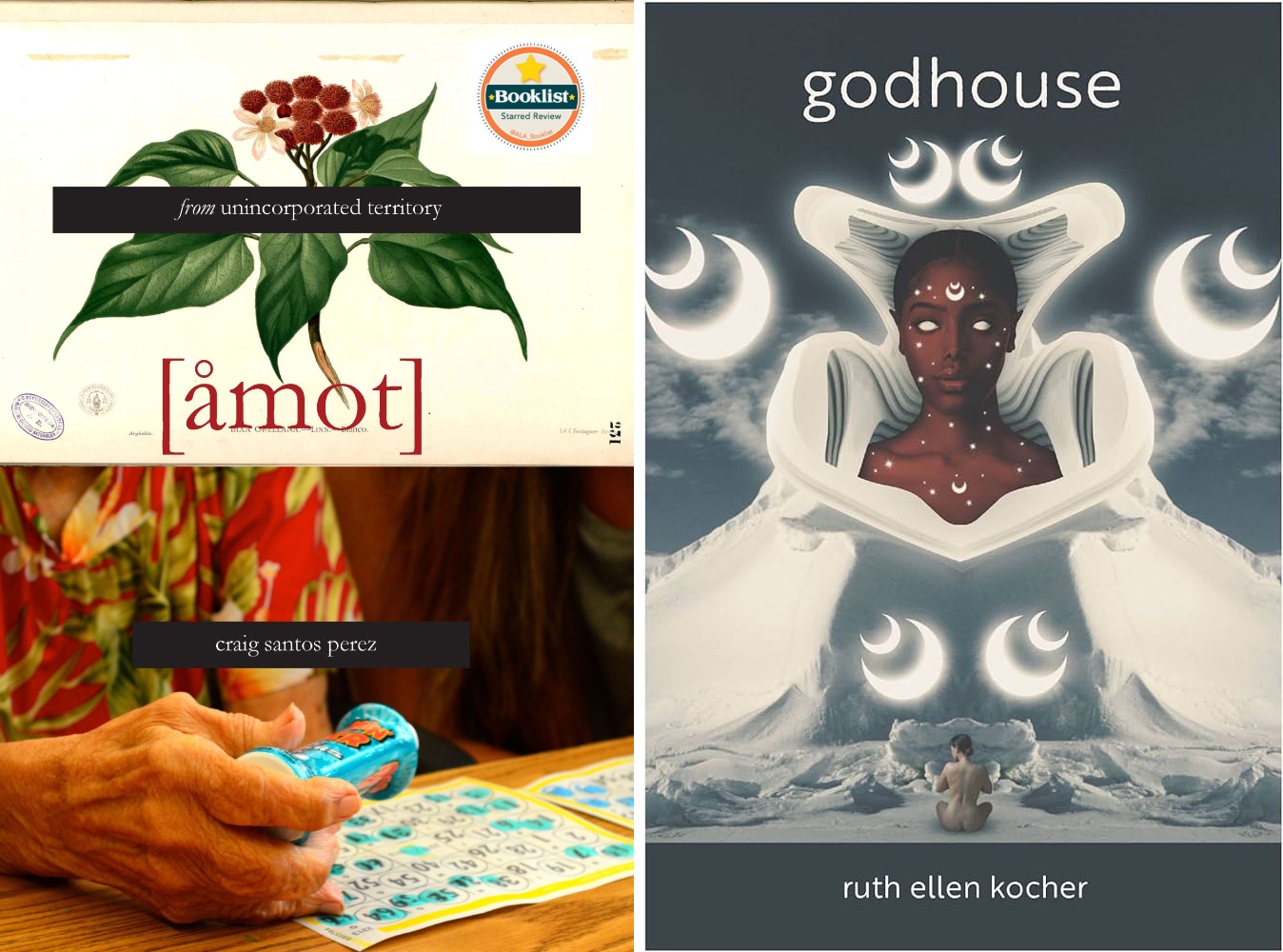
Since it was founded in 2001 by the late Ken Keegan and Rusty Morrison, the Richmond, Calif.–based nonprofit publisher Omnidawn Publishing has had two books longlisted for the National Book Award and two books named finalists. This year, it found a winner in from unincorporated territory [åmot] by Craig Santos Perez, which took home the National Book Award for Poetry on November 15.
Omnidawn, according to the publisher’s mission statement, seeks to “publish creative works that open readers anew to the myriad ways that language may bring new light, insight, awareness, as well as a heightened respect for and appreciation of differences.” Its name—comprising the combining form ” ‘omni’ (in all ways and places)” and ” ‘dawn’ (the first appearance of light)”—suggests as much.
In his acceptance speech at this year’s National Book Awards ceremony, Perez, who hails from Guam, put a point on precisely that: “When I was growing up in kind of a colonial American school system, we were never taught our own people’s literature, we were always taught American literature,” he said. “So when I started writing, my mission was to inspire the next generation of Pacific Islanders.”
Morrison said that, this holiday season, she expects [åmot]—along with five other titles by Perez, whose collections Omnidawn has published since his sophomore collection, 2017’s from unincorporated territory [saina]—to sell well. Other titles she has high hopes for over the holidays include Endi Bogue Hartigan’s oh orchid o’clock, Ruth Ellen Kocher’s Godhouse, Kimberly Reyes’s vanishing point., and Kelly Weber’s You Bury the Birds in My Pelvis.
Omnidawn is distributed by the University of Chicago Press/Chicago Distribution Center, and prints its books using UCP/CDC’s print-on-demand system, which Morrison said means “there is always an immediate turnaround for any books ordered.” She added that she heard from her distributor first thing in the morning after Perez’s win, and that “they said that all is going smoothly,” alerting both Amazon and Ingram—which already had copies in stock—to “make sure they know they’re going to need more.”
Speaking more broadly to how she predicted the holiday season might play out sales-wise, Morrison said, “I read the articles in Publishers Weekly, and the regular emails. What a roller coaster of competing/contrasting information! I personally know so many people who are struggling financially. All my friends and relations are avid readers, as am I. We all have had to buy fewer books. But I do sense that people, at least the ones I know, believe in physical books (especially for poetry) and believe in offering at least some support for small presses.”
Morrison noted that occasionally, recipients of her press’s newsletters email her about new titles and press news, and that she is encouraged that “people I don’t know reply with kindness and enthusiasm” about their work and the work of independent publishers. “Some say things like: this culture would be in worse shape than it is, if we didn’t have independent publishers bringing out work that doesn’t just align with the norms, and that works to open minds to alternatives,” she said.
“We are in our ‘end of year giving campaign,’ and it is heartening to see that people donate what they can—any small amount helps,” she added. “And every donation (even small) shows us that people care about books, and about the value of independent publishing. What does all this mean about sales during the holiday season? Maybe it means that there are people who still love giving and receiving a book as a holiday gift!”
